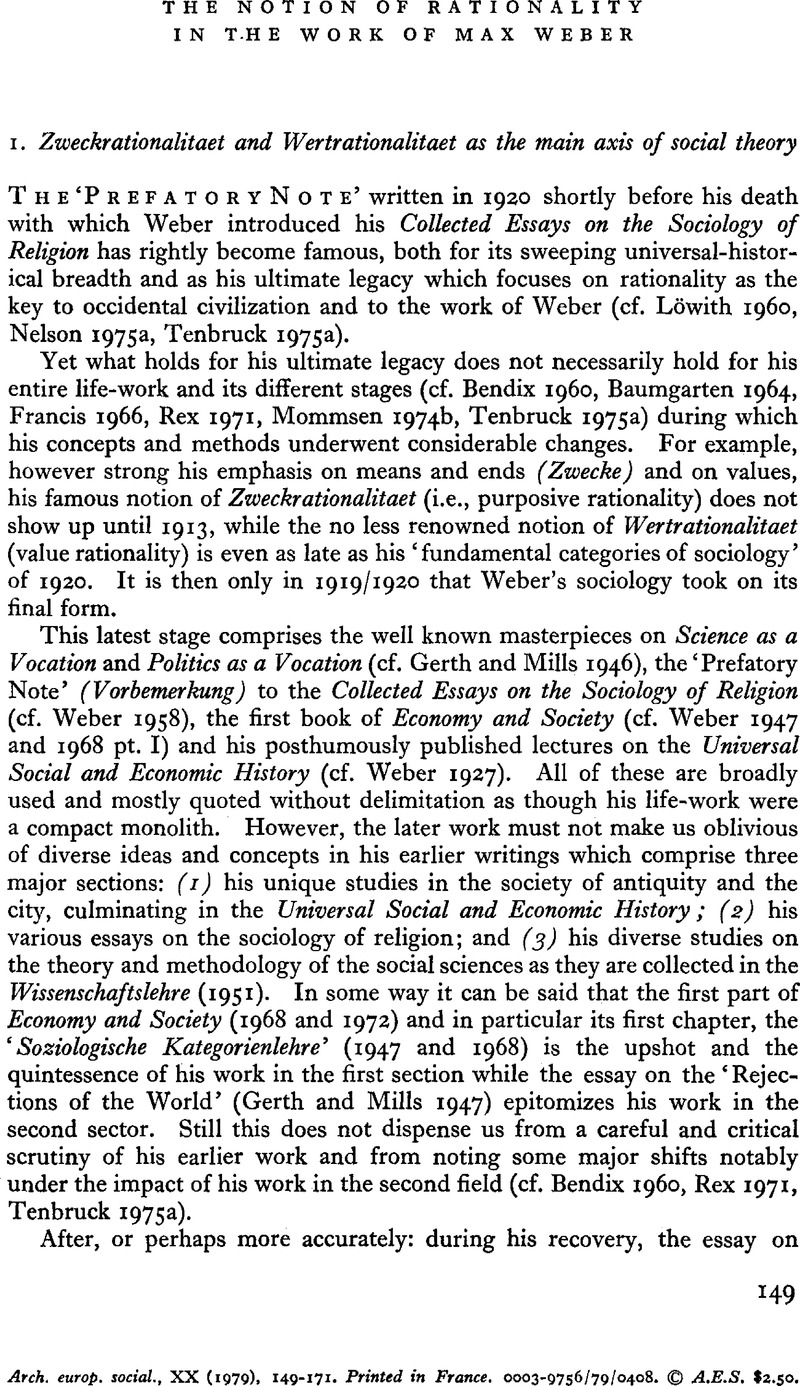Crossref Citations
This article has been cited by the following publications. This list is generated based on data provided by Crossref.
1976.
Les étapes de la pensée sociologique.
p.
657.
Udehn, Lars
1981.
The Conflict between Methodology and Rationalization in the Work of Max Weber.
Acta Sociologica,
Vol. 24,
Issue. 3,
p.
131.
Arjomand, Saïd Amir
1981.
The Shiʿite Hierocracy and the State in Pre-modern Iran: 1785–1890.
European Journal of Sociology,
Vol. 22,
Issue. 1,
p.
40.
Cahnman, Werner J.
1981.
Toennies and Weber: a Rejoinder.
European Journal of Sociology,
Vol. 22,
Issue. 1,
p.
154.
Bryman, Alan
1984.
ORGANIZATION STUDIES AND THE CONCEPT OF RATIONALITY.
Journal of Management Studies,
Vol. 21,
Issue. 4,
p.
391.
Badham, Richard
1984.
Industrial Society.
Current Sociology,
Vol. 32,
Issue. 1,
p.
7.
Segady, Thomas W.
1988.
Rationality and irrationality: New directions in Weberian theory, critique, and research.
Sociological Spectrum,
Vol. 8,
Issue. 1,
p.
85.
Kuty, Olgierd
and
Nachi, Mohamed
2004.
Le Compromis, Rationalité et Valeur: Esquisse d’une approche sociologique.
Social Science Information,
Vol. 43,
Issue. 2,
p.
307.
Elliott, Colin P.
2020.
Economic Theory and the Roman Monetary Economy.
Sarasvathy, Saras
and
Botha, Helet
2022.
Bringing People to the Table in New Ventures: An Effectual Approach.
Negotiation Journal,
Vol. 38,
Issue. 1,
p.
11.
Sciriha, Lydia
and
Vassallo, Mario
2023.
English in Valletta's Linguistic Landscape: a case of instrumental rationality?.
English Today,
Vol. 39,
Issue. 2,
p.
155.
McGee, Ebony
2025.
Black and (E)raced: socializing high-achieving black students to minimize racism.
Race Ethnicity and Education,
p.
1.



